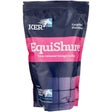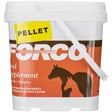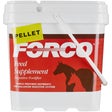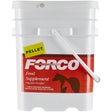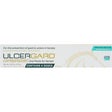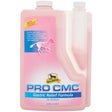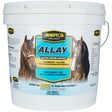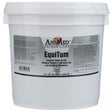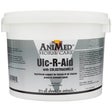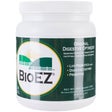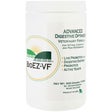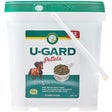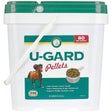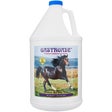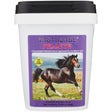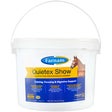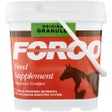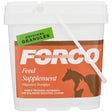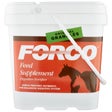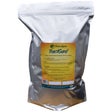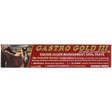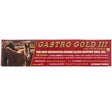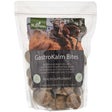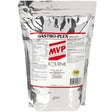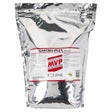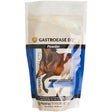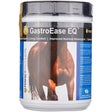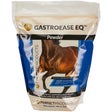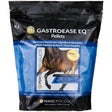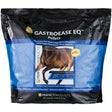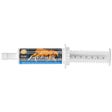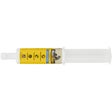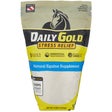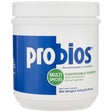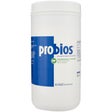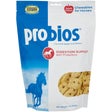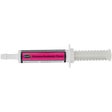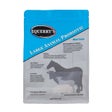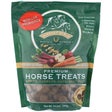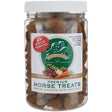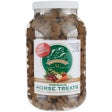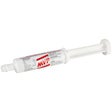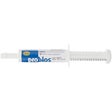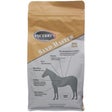The Scoop On Equine Digestive Supplements

While horses are powerful animals in many ways, their digestive systems are unfortunately quite delicate. From stomach ulcers to loose stools to sand colic, the stressors of modern living and training situations can cause digestive issues that negatively impact a horse's health and performance. In this edition of "The Scoop On Supplements," we will explain how supplements can support your horse's gastric and digestive health.
| Shop Equine Digestive Supplements |
Gastric Health: Preventing Stomach Ulcers
Did you know your horse's stomach is constantly secreting gastric acids? While this is beneficial for digestion if they are allowed to graze freely, it can be an issue with modern management situations. Combining factors such as limited access to forage, feeding concentrated grains, stall confinement, use of anti-inflammatories, and the stress of training and traveling, many horses are at risk for developing stomach ulcers. In fact, ulcers may affect over 60% of performance horses, and even non-performance horses are susceptible.
The good news is that supplements can help prevent stomach ulcers before they become an issue. Below are some common ingredients used in supplements.
- Omeprazole: The main ingredient in the popular paste Ulcergard, omeprazole is a proton pump inhibitor that reduces the amount of acid produced in the stomach. While this can be an effective short-term solution for stomach ulcers, it is not recommended to give omeprazole on an ongoing basis since stomach acid is needed to digest food.
- Antacids: Ingredients such as calcium carbonate, magnesium hydroxide, and sodium bicarbonate can help neutralize the acid in the stomach. Antacids work quickly and have a short-acting effect.
- L-Glutamine: Glutamine is an amino acid that has been shown to be beneficial in treating stomach ulcers. It can help prevent and repair damage to tissue, and it also supports nutrient absorption in the hindgut.
- Aloe Vera: Commonly known as the cooling gel used to treat sunburns, aloe vera can also be incorporated into supplements to help soothe the stomach lining and buffer acid.
Shop Gastric Support Supplements
Digestive Support: Prebiotics and Probiotics
Horses are hindgut fermenters, which means that a large part of their digestion occurs through the process of fermentation by billions of bacteria in the large intestine. These beneficial bacteria are usually maintained by a high-fiber, forage-based diet, but disruptions can occur due to stress, high amounts of concentrated feeds, and the use of antibiotics. Supplements can help support and replenish these beneficial bacteria to prevent and alleviate digestive disturbances. Supplements will either offer prebiotics, probiotics, or both.
- Prebiotics: Prebiotics are a source of food for beneficial gut bacteria. Feeding prebiotics alone will support already established bacteria and feeding them together with probiotics can help support the flourishing of new bacteria.
- Probiotics: Probiotics are live bacteria and yeasts that are used to help reestablish beneficial microorganisms in the gut. There are many different bacteria strains available, such as Lactobacillus and Enterococcus.
Shop Prebiotic and Probiotic Supplements
Sand: The Sneaky Enemy

If your horse lives in a sandy area, they are at risk of collecting sand in their gut when they graze. While ingested sand can travel through the digestive system and pass naturally, it can also settle into lower areas of the intestine. Over time, the horse's gut can collect large amounts of sand which can lead to colic.
Luckily, psyllium supplements can help. Psyllium is a soluble fiber that turns into a gel-like substance when combined with water in the gut. This gel can pick up sand as it moves through the digestive system and helps it pass more easily.
It's recommended to feed a psyllium supplement for seven days in a row once per month to prevent sand accumulation. Feeding it for a shorter period than this may not be effective, and feeding it daily may allow the gut to adjust to the extra fiber and also reduce the effectiveness.

